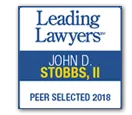Due to recent case law developments, whether or not a person will face a minimum 10-year sentence for attempted sexual enticement of a minor depends on how his jurisdiction chooses to define two words: sexual activity. As of now, at least two circuits have chosen vastly different definitions. With the increase of internet related crimes, this question is becoming more and more common. It is likely that until the Supreme Court or Congress sets the record straight, circuits will continue to struggle with how to define this term. This article focuses the Seventh Circuit, which has defined “sexual activity” as requiring physical contact.
Under federal law, child enticement is codified under 18 U.S.C. § 2422(b). This statute prohibits using interstate commerce to coerce a person under the age of eighteen to engage in any illegal “sexual activity” or to attempt to arrange such an encounter. Those found in violation of §2422(b) “shall be fined . . . and imprisoned not less than 10 years or for life.” In order to charge someone under § 2422(b), federal prosecutors must also bring a charge under a state or federal statute that criminalizes “sexual activity” in order to establish the federal offense. This, however, has become difficult for prosecutors to navigate, as it has come to light that Congress has not
defined “sexual activity” within the meaning of § 2422(b).
In recent cases, defendants charged under § 2422(b) have argued that “sexual activity” requires actual physical contact. Therefore, in order to be charged under the statute, they must have had or attempted to have physical contact with the minor. Therefore, any charge that does not actually include physical contact will not satisfy the meaning of “sexual activity” under the statute. For example, if a defendant only communicated to a perceived minor over the internet, but never took the necessary steps to arrange an actual meeting with the perceived minor, this would not satisfy the statutory requirement of “sexual activity.” Therefore, charges under §
2422(b) would be improper. The lack of a statutory definition has lead to a split in the circuits on this issue.
In United States v. Taylor, a decision from the Seventh Circuit, the defendant asserted that he could not be charged under § 2422(b) because he never touched the child. 640 F.3d 255, 256-57 (7th Cir. 2011). Instead, he fondled himself in front of a web camera and similarly encouraged the person he believed to be a minor to fondle herself for him. Id. In fact, it was an undercover officer on the other side of the computer. Id. Judge Posner agreed with the defendant, reversed his conviction, and held that § 2422(b) only criminalizes defendants who engage or who intend to engage in interpersonal physical contact with children. Id. at 259-60.
The following year, the Fourth Circuit was faced with a similar issue. In United States v. Fugit, the Fourth Circuit held that interpersonal physical contact was not a requirement because “sexual activity” “comprises conduct connected with the active pursuit of libidinal gratification.”
703 F.3d 248, 255 (4th Cir. 2012). In that case, the Fourth Circuit interpreted “sexual activity” broadly. This created a direct conflict between the Seventh and Fourth Circuits in determining the meaning of “sexual activity” under § 2422(b). The Supreme Court has denied certiorari for the Fugit decision, and therefore the split remains.
Returning to the Seventh Circuit’s decision in Taylor, Judge Posner walks through a long line of analysis. The key to the holding is that Posner found that the undefined term “sexual activity” is equivalent to the defined term of “sexual act.” “Sexual act” is defined as “the intentional touching, not through the clothing, of the genitalia of another person who has not attained the age of 16 years.” 18 U.S.C. § 2246(2)(D). This definition clearly requires physical contact between two people. Posner found this statutory definition in another section controlling due to legislative intent and the rule of lenity. The rule of lenity acknowledges that when there are two equally plausible interpretations of a criminal statute, the defendant is entitled to the more lenient definition. Taylor, 640 F.3d at 259-60. In other words, the tie goes to the defendant. Id. at 260 (citing United States v. Santos, 553 U.S. 507, 514 (2008)).
In one of the more poetic moments of the opinion, Posner outlines the risk of assuming “sexual activity” is defined more broadly than “sexual act.” Posner writes that if “sexual activity” were to encompass a broader range of acts than “sexual act,” then it would have been defined as such. Id. at 257. Without a definition, many things could potentially fall into the category of “sexual activity.” Posner asks, “is watching a pornographic movie, or a pole dancer, or a striptease artist, or Balthus’s erotic paintings, or Aubrey Beadsley’s pornographic sketches, or Titian’s ‘Rape of Europa,’ or ‘Last Tango in Paris’ a ‘sexual activity’?” Id. While this is obvious hyperbole, it raises the important issue that if “sexual activity” really were to have a broader definition than “sexual act”—it must be defined by statute in order to prevent a slippery slope interpretation that goes too far. Therefore, since the term remains undefined by statute, it is best to narrowly construe it to limit its reach.
Posner elaborates on why it is so important to limit “sexual activity” to a definition that requires physical contact. The penalty for violating § 2422(b) is a minimum 10 year sentence. This is not something to be taken lightly. Posner points out that “flashing” is a minor sex crime, “certainly not the sort of crime for which a minimum of 10 years in prison is the proper sentence.” Id. at 258. Posner gives example of an Indiana law for flashing, and states, “if the government’s broad conception of “sexual activity” were accepted, then by virtue of that misdemeanor law a flasher in the lobby of a federal courthouse in Southbend, if charged under 18 U.S.C. § 2422(b), would be courting a prison sentence of at least 10 years.
Whether or not Judge Posner’s hypothetical would ever come to fruition is hard to tell. However, the important point is that by broadly defining an undefined term, it creates inherent risk that certain individuals will be charged with crimes they should not be charged with. In our justice system, we put more value in not convicting the wrong man over letting a guilty man go free. Until Congress actually defines “sexual activity,” the Seventh Circuit has mitigated the damage the charge may cause by narrowly defining it as equivalent to “sexual acts,” which requires the presence of physical contact.




